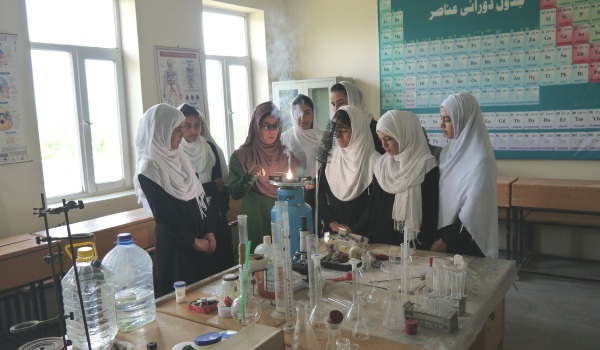The VIDC has prepared a guide presenting promising development projects implemented by Afghan diaspora organisations in Europe since the Taliban were ousted from power by US-led coalition forces in 2001. The guide also presents recommendations from the Vienna Network Conference "Knowledge Transfer and Support", which took place in Vienna on 2 - 3 December.
For the first time in Austria, the conference brought Afghan diaspora organisations and experts from nine European countries together with public institutions, international organisations and development NGOs in order to highlight the diversity of Afghan associations and discuss best practice examples from various European countries. In the plenums and workshops of the conference, the status quo of diaspora and migration policy in Europe and Afghanistan was discussed, as well as financing models, networking of Afghan diaspora organisations, (self-) empowerment of Afghan women, the challenges of project work in Afghanistan and Pakistan, and the problems of Afghan refugees in Pakistan and in Europe with regards to integration. In addition, the more than 100 participants of the conference developed recommendations for future measures and for a better integration of Afghan diaspora organisations in development and migration policy.
„Examples of Good Practice“
The VIDC took the conference as an opportunity to produce a guide on "Examples of Good Practice" of Afghan diaspora organisations. This guide presents 19 promising development projects from five countries that have been implemented by Afghan diaspora organisations in Europe since the Taliban were ousted from power by US-led coalition troops in 2001. In addition, the guide presents five projects of active Afghan diaspora initiatives in Austria, which are mainly active in the intercultural field. The guide is intended to support European development organisations and donor countries in using the potential of Afghan diaspora organisations and to provide an incentive for development cooperation in Austria. The draft guide was discussed at the conference and a chapter on challenges and recommendations was added.
The Afghan diaspora becomes active
Making these diaspora initiatives visible, and promoting them, is of central importance to the VIDC. Most of the actors from the diasporas who are committed to development policy are barely noticed in the development policy scene. This is due to the fact that diaspora organisations are very often only informally organised or are only weakly institutionalised themselves; they mainly carry out voluntary work and have few resources available for marketing and lobbying. Nevertheless, they provide individual and collective services for the countries of origin and thus support private health care, education and other comparable development cooperation services. It is difficult to assess the extent to which diaspora organisations influence developments in their respective countries of origin (or that of their parents). In most cases, the discussion on this topic refers to remittances made by migrants to their countries of origin. According to the World Bank, $USD551 billion of these remittances flowed to low and middle-income countries in 2019, which is three times as much as was made available for development cooperation and aid worldwide in the same period.

